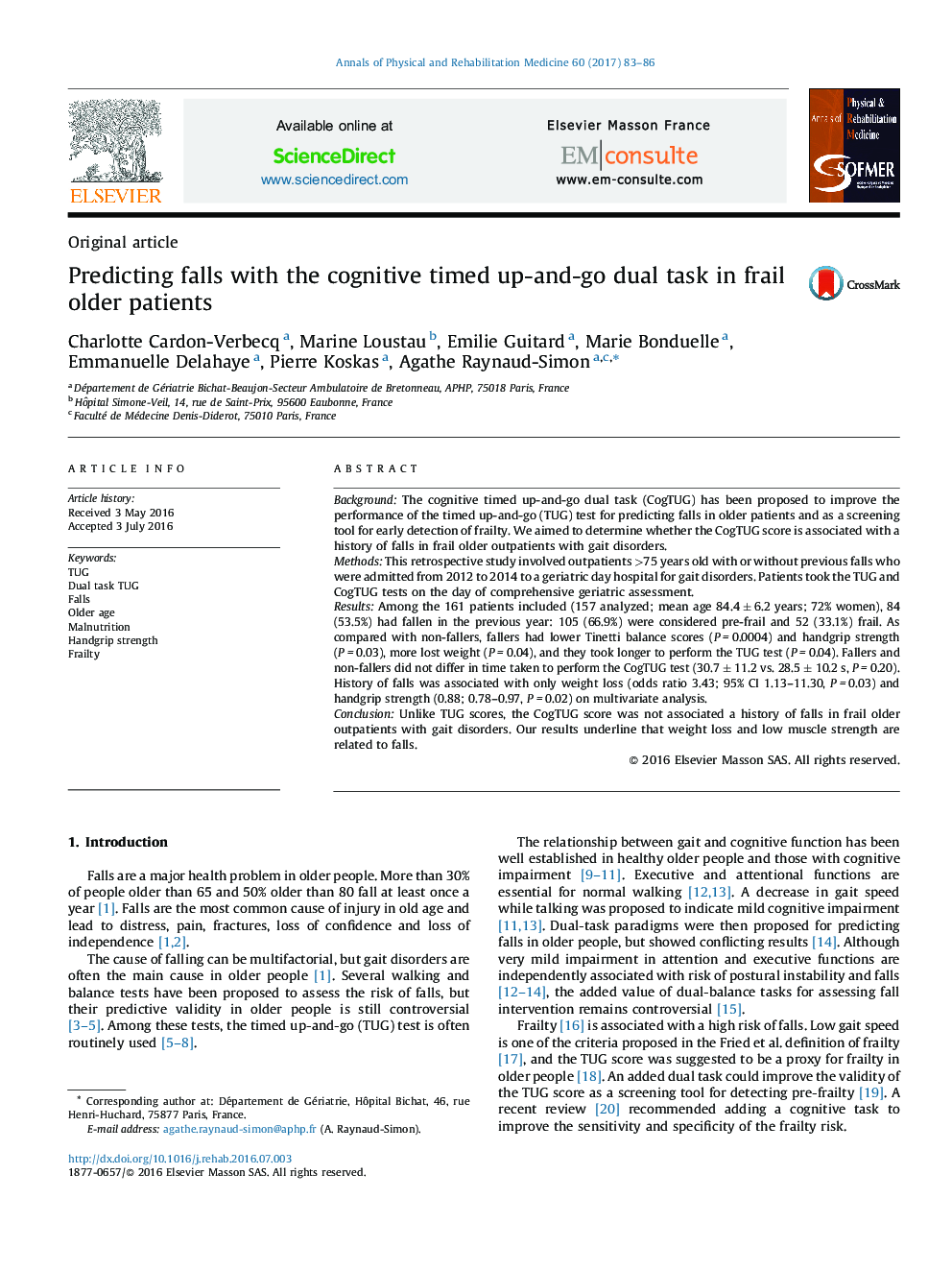| Article ID | Journal | Published Year | Pages | File Type |
|---|---|---|---|---|
| 5706014 | Annals of Physical and Rehabilitation Medicine | 2017 | 4 Pages |
BackgroundThe cognitive timed up-and-go dual task (CogTUG) has been proposed to improve the performance of the timed up-and-go (TUG) test for predicting falls in older patients and as a screening tool for early detection of frailty. We aimed to determine whether the CogTUG score is associated with a history of falls in frail older outpatients with gait disorders.MethodsThis retrospective study involved outpatients >75 years old with or without previous falls who were admitted from 2012 to 2014 to a geriatric day hospital for gait disorders. Patients took the TUG and CogTUG tests on the day of comprehensive geriatric assessment.ResultsAmong the 161 patients included (157 analyzed; mean age 84.4 ± 6.2 years; 72% women), 84 (53.5%) had fallen in the previous year: 105 (66.9%) were considered pre-frail and 52 (33.1%) frail. As compared with non-fallers, fallers had lower Tinetti balance scores (P = 0.0004) and handgrip strength (P = 0.03), more lost weight (P = 0.04), and they took longer to perform the TUG test (P = 0.04). Fallers and non-fallers did not differ in time taken to perform the CogTUG test (30.7 ± 11.2 vs. 28.5 ± 10.2 s, P = 0.20). History of falls was associated with only weight loss (odds ratio 3.43; 95% CI 1.13-11.30, P = 0.03) and handgrip strength (0.88; 0.78-0.97, P = 0.02) on multivariate analysis.ConclusionUnlike TUG scores, the CogTUG score was not associated a history of falls in frail older outpatients with gait disorders. Our results underline that weight loss and low muscle strength are related to falls.
